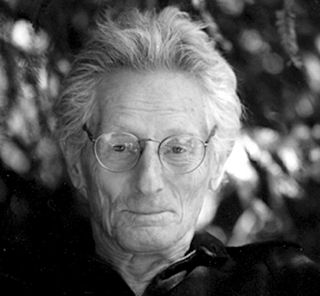A Quote by Robert Greene
As social animals we humans are very sensitive to our rank and position within any group. We can measure our status by the attention and respect we receive.
Related Quotes
We humans are in such a strange position—we are still animals whose behavior reflects that of our ancestors, yet we are unique—unlike any other animal on earth. Our distinctiveness separates us and makes it easy to forget where we came from. Perhaps dogs help us remember the depth of our roots, reminding us—the animals at the other end of the leash—that we may be special, but we are not alone. No wonder we call them our best friends.
We humans are herd animals of the monkey tribe, not natural individuals as lions are. Our individuality is partial and restless; the stream of consciousness that we call 'I' is made of shifting elements that flow from our group and back to our group again. Always we seek to be ourselves and the herd together, not One against the herd.
There is increasing social concern about our use of nonhumans for experiments, food, clothing and entertainment. This concern about animals reflects both our own moral development as a civilization and our recognition that the differences between humans and animals are, for the most part, differences of degree and not of kind.
It is not just contemporary industrial society that is dysfunctional; it is civilization itself. We humans are born to be creatures of the land and the sea and the stars; we are relations to the animals, cohorts to the plants. Our well being, and the well-being of the very planet depend on our pursuance of our given place within the natural world.
Humans — who enslave, castrate, experiment on, and fillet other animals — have had an understandable penchant for pretending animals do not feel pain. A sharp distinction between humans and 'animals' is essential if we are to bend them to our will, make them work for us, wear them, eat them — without any disquieting tinges of guilt or regret. It is unseemly of us, who often behave so unfeelingly toward other animals, to contend that only humans can suffer. The behavior of other animals renders such pretensions specious. They are just too much like us.
Presumably there are energies, to which each human is sensitive, that we cannot yet detect by means of our instruments. Built into our brains and our bodies are very sensitive tuneable receivers for energies that we do not yet know about in our science but that each one of us can detect under the proper circumstances and the proper state of mind. We can tune our nervous systems and bodies to receive these energies. We can also tune our brains and bodies to transmit these energies.
While women once acquired relationship skills to "hook," "snare," or "catch" a husband who would provide access to economic security and social status, the position of contemporary women has not changed that radically. Much of our success still depends on our attunement to "male culture," our ability to please men, and our readiness to conform to the masculine values of our institutions.
Earthly families all look different. And while we do the best we can to create strong traditional families, membership in the family of God is not contingent upon any kind of status - marital status, parental status, financial status, social status, or even the kind of status we post on social media.
Animals struggle with each other for food or for leadership, but they do not, like human beings, struggle with each other for thatthat stands for food or leadership: such things as our paper symbols of wealth (money, bonds, titles), badges of rank to wear on our clothes, or low-number license plates, supposed by some people to stand for social precedence. For animals the relationship in which one thing stands for something else does not appear to exist except in very rudimentary form.
When humans act like animals, they become the most dangerous of animals to themselves and other humans, and this is because of another critical difference between humans and animals: Whereas animals are usually restrained by the limits of physical appetites, humans have mental appetites that can be far more gross and capacious than physical ones. Only humans squander and hoard, murder and pillage because of notions.







































